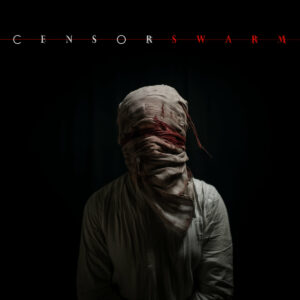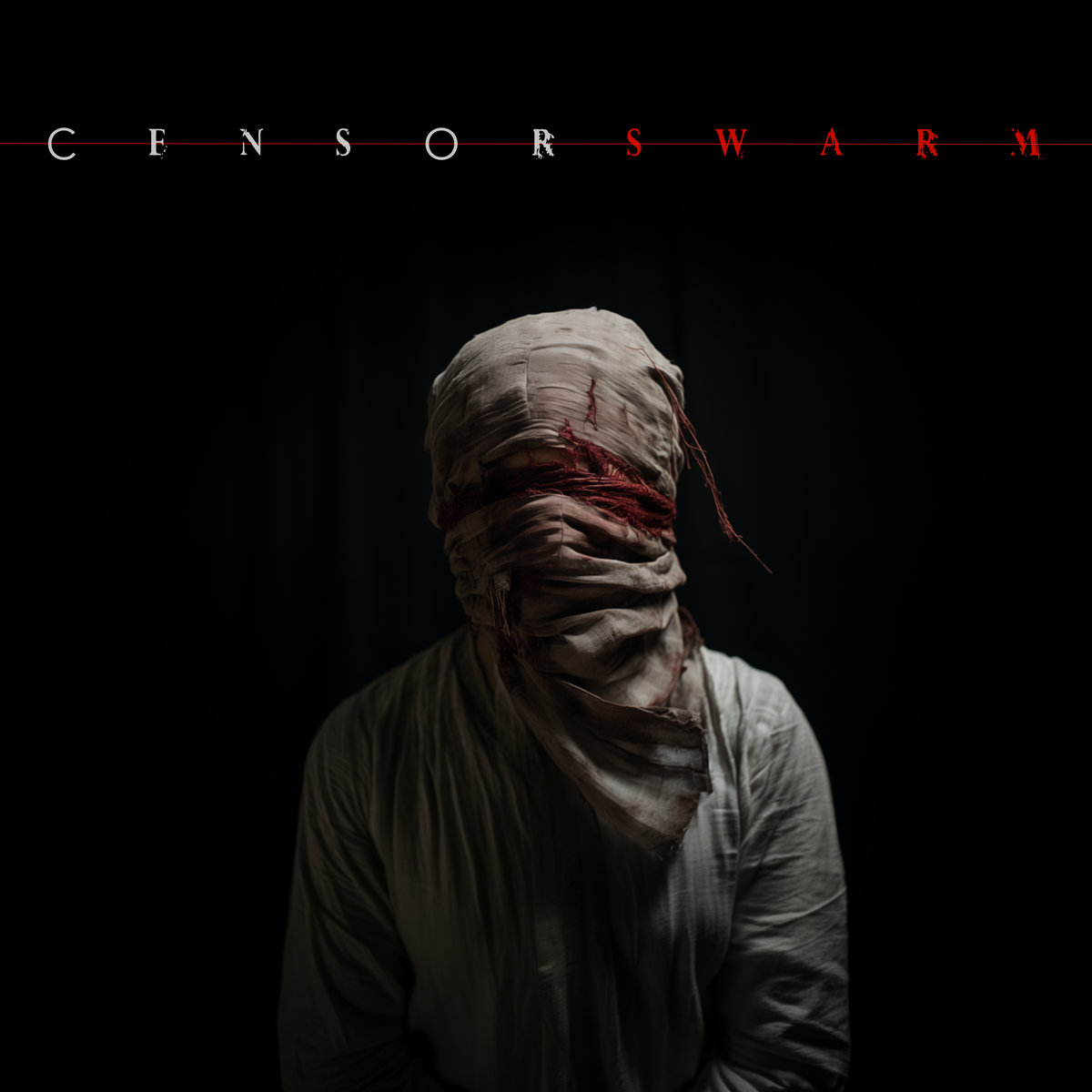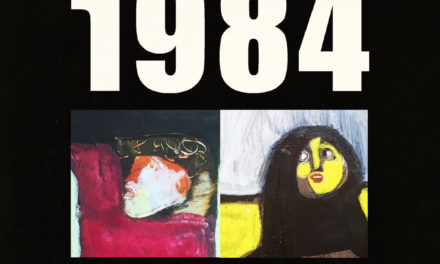
CENSOR
Swarm
ollilaboratories
Jouni Ollila has a deep list of credits across the electronic music spectrum. As a founding member of death industrial pioneers Mz.412 and his involvement with Swedish EBM pioneers Pouppée Fabrikk, not to mention a steady stream of recording and engineering work and solo projects, he’s built a career that touches on a broad swathe of electronic genres. His new project CENSOR is interesting in that it’s hyperfocused on a very specific strain of dark minimal body music, and very specifically on the way in which that style was innovated by Belgian duo The Klinik.
To be clear, this isn’t a subtle homage; Ollila is very directly invoking the dark, woozy EBM that Ivens and Verhaeghen perfected during their eighties run, right down to the seasick rhythms and processed and delayed vocal effects chain. What’s more, he’s unsurprisingly very good at it, with numerous moments that are practically indistinguishable from their primary source of inspiration. Instrumental “Life Endr” has those low moaning synths and unpredictable drum patterns of the Face to Face era down pat, while “Rebirth” trades in the tumbling, disorienting programming that defined classics like “Sleepwalking” and “Black Leather”. Everything from sound design, to lyrics and songwriting, to the very specific atmosphere of dread that defined the Klinik’s classic catalogue is replicated with an almost eerie precision.
It’s a feat that is doubly impressive simply because so few of those who have attempted it before have ever really done as fair a job of it. While early Suicide Commando and a few other assorted acts have given it a shot over the years, there’s a very specific foreboding that is not easily captured and reconstituted. Ollila has the sound so locked in he can even invoke it while stretching its boundaries. The repeated single note piano figure of “Black Needles” isn’t the sort of thing you’d expect to work as well as it does in the milieu, but somehow its hammered repetition perfectly fits between the song’s detuned analogue synths and rubbery bass. Similarly the warm organ tone of the excellent “1000 Faces” adds an almost wistful feeling to an otherwise queasy arrangement of drums, vocal samples and synth sequences.
The appeal of an exercise like Swarm is obviously going to be limited to how much any given listener likes the act being replicated, and those who aren’t fussy about the Klinik probably won’t find much here to enjoy. That said, those who do enjoy that catalogue and like the idea of someone doing a high-definition tribute to it should be pleased by CENSOR’s absolute dedication to the endeavour, and the feverish, uneasy results.





